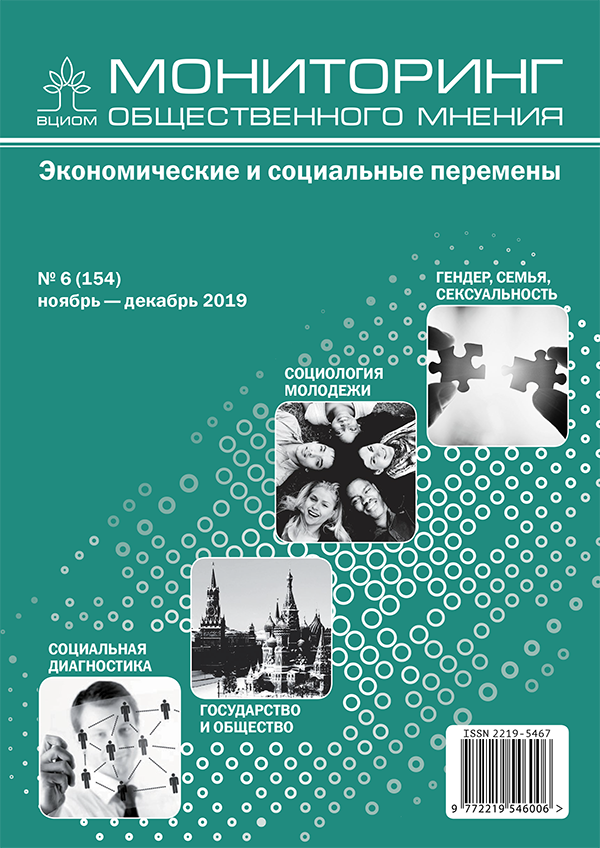Childfree or Voluntarily Childless? Redefining the conceptual field of studies on non-parenthood in Russia
DOI:
https://doi.org/10.14515/monitoring.2019.6.20Keywords:
childfree, intentional childlessnes, voluntary childlessness, childhate, reluctant parents, regretting parenthood, intended childlessness, non-parenthood, conceptsAbstract
The essay is an attempt to distinguish between the semantic notion of “childfree” and that of “voluntary childlessness” taking into account the Russian specifics. The author consistently describes socio-political content of the Russian research field emphasizing the conservative pro-natal trends of the recent years. The paper considers the origins of the conceptual field of non-parenthood and the evolution of the related research area. For the first time in the Russian-language scientific literature, the National Organization of Non-Parents, a key actor in childfree activism, is described in detail. In addition, based on the data of a study conducted in 2014-2016, the author examines the childfree category internalized in the Russian-language discourse (“chayldfri”) and the notion of “dobrovolnaya bezdetnost” (voluntary childlessness). The author also outlines the semantic points framing these notions and leveling off the tendency to equate these notions in the everyday and scientific discourses. By criticizing the use of the childfree notion in the Russian-language practice, the author proposes to apply the notion of voluntary childlessness as the latter one is wider, more fundamental and less complex semantically. The article also explores the widely used notion of “childhate” and the phenomenon of regretting parenthood. The author offers a heuristically valuable alternative to each of them. In conclusion, the author redefines the notions discussed in the article and proposes a conceptual framework for further research on voluntary childlessness in the Russian context.
Acknowledgments. The author expresses gratitude to Olga Isupova for the longstanding guidance and assistance in the project at different stages. A special word of gratitude goes to Irina Tartakovskaya for her proofreading of the first version. The author would also like to thank the participants of the section “Institutional transformation in the Russian family” (X Russian Scientific Conference in memory of Yu. Levada (and personally S.V. Zakharov, head of section), participants of particular sections of XI, XI and XII International Conferences of the Russian Association of Researchers in Women's History and the Institute of Ethnology and Anthropology of the Russian Academy of Sciences (and personally M.G. Muravyeva, N.A. Mitsyuk, N.L. Pushkareva) for their direct and indirect help in preparation of this paper. The author is also thankful to all informants who were extremely open and brave to express their viewpoints.
The work on this essay was completed as part of the internship at the Department of Sociology (Lund University, Sweden) and supported by the Sverker Åström Foundation. The publication is supported by the grant of the Russian President for young Russian scientists (project no. МД-3743.2018.6).
Downloads
Published
How to Cite
Issue
Section
License
Copyright (c) 2019 Monitoring of Public Opinion: Economic and Social Changes Journal. Public Opinion Monitoring ISSN 2219-5467

This work is licensed under a Creative Commons Attribution-NonCommercial-ShareAlike 4.0 International License.






